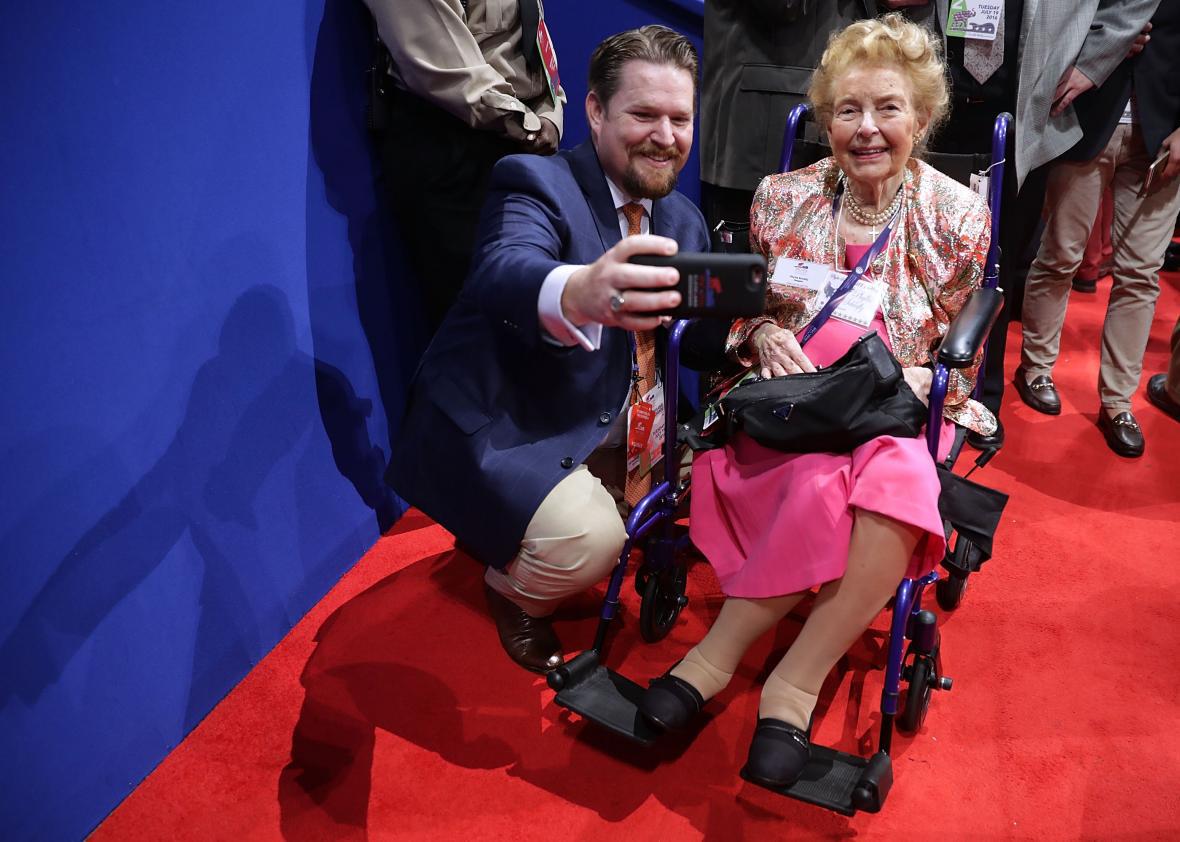Is there any science behind trigger warnings—the social-justice practice of telling listeners, or readers, that they might encounter words that could recall traumas? Katy Waldman investigates, interviewing psychologists and PTSD suffererers about the effects of language. Trigger warnings “send the message that language itself is going to damage you, and that’s simply not true,” one psychologist told Waldman. “Narrative doesn’t have the power to control us. Even coping with anxiety, we can choose how to structure our lives.”
Phyllis Schlafly, who died Sunday at the age of 92, was a walking paradox, Michelle Goldberg writes. As “the most influential anti-feminist in American history,” Schlafly prevented the Equal Rights Amendment from becoming law, employing forward-thinking tactics of activism to do so. Yet, Goldberg remembers,“much of her life could serve as a feminist parable, as she relentlessly maneuvered for power in a male-dominated world.”
Don’t tell an infertile couple they should “just adopt,” writes Belle Boggs, in an excerpt from a new book about fertility. The question is far more complicated than it seems, and adoption is not always simpler, cheaper, or more humanitarian than in vitro fertilization. “Look at the obstacles to both kinds of birth stories, and you’ll see that there is a kinship between them,” Boggs writes. “We might cheer the adoptive family or pity the fertility patient, but they are offered little in the way of the support that matters. A $13,400 federal tax credit, retroactive and nonrefundable, favors adoptive families of means and hardly covers the associated expenses. Most insurance plans cover few of the costs of fertility treatment.”
Selma director Ava DuVernay’s new TV show, Queen Sugar, is great, writes Willa Paskin, who has watched the first three episodes twice now. Queen Sugar “gives with both hands, providing something for your mind and for your eyes, something to contemplate and something to squeal over,” Paskin writes enthusiastically. “It is an ambitious series with the confidence to be fun.”
For fun: Can you tell which Hamilton character and song you’re hearing, given a single yo?
It’s for super, superfans,
Rebecca
